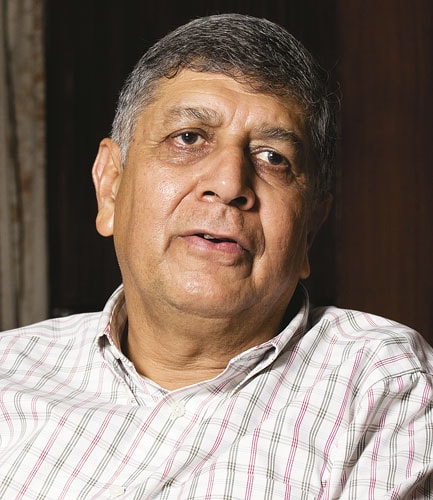
We Aren't a Patent Troll
Critics equate the business of Washington-based Intellectual Ventures in patentable research with land grabbing! Forbes India quizzes former IIT director and the firm's India chairman Ashok Misra
Name: Ashok Misra
Title: Chairman, India and Head of Global Alliances, Intellectual Ventures
Age: 62
Qualifications: IIT-Kanpur, 1958, Masters at Tufts University, PhD in Polymer Science and Engineering at the University of Massachusetts.
Work experience: Worked at Monsanto in the US for three years. Worked at IIT-Delhi from 1977 to 2000. Was director of IIT-Bombay during 2000-2008.
Hobbies: Photography, carpentry, travelling, playing tennis, squash, swimming.
Research institutions come out with patentable property which companies commercialize. Why are you changing the process?
We are an invention fund. So we do some crystal-ball gazing and come with themes that will be important over the next five to ten years. And then we fund people who can develop patents in those themes. If a company wants to develop a product in that area they can come to us and choose from an array of patents. They don’t have to deal multiple entities.
The researcher benefits because we provide a research direction and also because we take care of all patenting costs. We make sure that patents are worded very tightly so that they are not infringed upon. We also monitor any infringement on these patents and use legal means to dissuade those who are trying to infringe.
That sounds like land grabbing and litigious…
The patent remains in the name of the researcher and the academic institution. We don’t buy but simply license for a specified period. Also, the research institution may have agreed to develop five patents in the research direction that we outlined, but they are under no duress to sell all of them to us.
And we don’t want to be litigious. It is not in our interest. May be that impression is there because in our first fund we did license already existing patents.
Is it correct to say that Indian institutions don’t have enough good patentable property?
More than 20 institutions have tied up with us and more than 300 inventors are working in the areas that we think have potential. In our review meetings, the work of Indian scientists is considered really good, amongst the best in the world.
But you are right in that the Indian scientists don’t do solutions-based research. Our experience till now tells us that many Indian scientists are trying to move from a research-and-publish mode to solution-based invention. Some, of course, will only remain theoretical scientists and frankly that’s alright. You need all kinds.
There is a concern amongst scientists you will license the patent from them cheaply then license it out to large companies for millions of dollars?
The fear is unfounded. We work on a model where there is a fixed payment that is made to the research institution and the scientist from where we license the patent. Then we pay the research institution a certain percentage of the royalties – I can’t reveal the number – from out-licensing of the patent to corporations. So if we make millions of dollars then the institution too will make good money.
(This story appears in the 30 November, -0001 issue of Forbes India. To visit our Archives, click here.)





